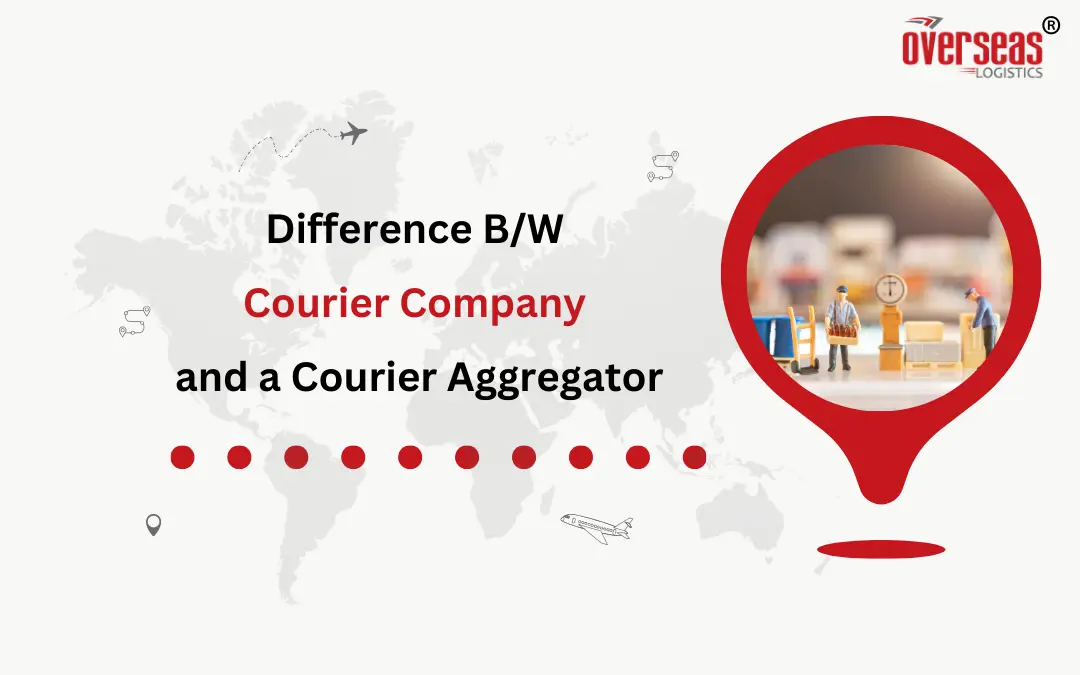In the dynamic realm of logistics, discerning between a courier company and a courier aggregator is pivotal for making informed shipping decisions. This comprehensive exploration elucidates the nuances, functionalities, and advantages/disadvantages inherent in each, shedding light on the elements that truly set them apart.
Unveiling the Foundations
Courier Company: Navigating the Logistics Landscape
A courier company operates as a self-contained entity, akin to the traditional post office. Entities like FedEx, UPS, and DHL epitomise this model. Possessing a dedicated fleet, delivery personnel, and physical offices, these companies orchestrate the entire logistics process, from parcel collection to final delivery.
Courier Aggregator: Bridging Gaps in Logistics
Conversely, a courier aggregator functions as an intermediary, connecting customers with an array of courier companies. Devoid of a proprietary delivery network, aggregators like ShipRocket, Overseas Logistics, ShipStation, and ShipKaro forge partnerships with multiple international courier services. Their platforms empower customers to compare rates, choose optimal options, and track shipments seamlessly.
Delving into Distinctions
1. Ownership and Infrastructure: The Backbone Divide
Courier Company: A self-contained entity owning and managing its entire logistics network, including personnel, vehicles, and warehouses.
Courier Aggregator: Operates without physical infrastructure, leveraging the networks of diverse courier companies.
This fundamental contrast influences operational methodologies and cost structures significantly.
2. Service Range and Options: Tailoring Choices
Courier Company: Offers a specific set of services and delivery options tailored to internal capabilities.
Courier Aggregator: Provides a broader spectrum of choices by collaborating with multiple courier companies. This entails enhanced flexibility in delivery speed, cost, and service levels.
3. Pricing and Cost Structure: The Chessboard of Rates
Courier Company: Typically adheres to fixed pricing structures based on internal operational costs and services.
Courier Aggregator: Offers competitive pricing by negotiating rates with various courier partners. This can translate to substantial cost savings for customers.
4. Tracking and Transparency: Navigating the Logistics Landscape
Courier Company: Employs tracking tools specific to their services, ensuring transparency.
Courier Aggregator: May integrate tracking services from partner courier companies into their platform, streamlining the tracking process for customers.
5. Reliability and Accountability: The Buck Stops Where?
Courier Company: Solely responsible for packages from start to finish, ensuring direct accountability.
Courier Aggregator: Acts as an intermediary, requiring communication with multiple courier partners for issue resolution. This could potentially add complexity to problem-solving.
Making an Informed Choice
In conclusion, the difference between an international courier service company and a courier aggregator becomes a crucial factor in the decision-making process when it comes to international parcel service shipping. While courier companies provide a controlled and direct approach, courier aggregators offer convenience, competitive pricing, and a plethora of options. Your choice hinges on specific needs and preferences, so consider your requirements meticulously the next time you send a package.
This succinct visual encapsulates the fundamental differences in ownership and infrastructure between a courier company and a courier aggregator.
FAQs
How does a courier aggregator benefit businesses?
Courier aggregators provide businesses with a cost-effective and flexible approach to logistics. Businesses can choose services that align with their budget and specific delivery requirements through their platform.
Is real-time tracking available with courier aggregators?
Yes, most courier aggregators offer real-time tracking features, allowing users to monitor the status and location of their shipments throughout the delivery process.
Do courier companies handle international shipments?
Many courier companies have the infrastructure and partnerships to handle international shipments, providing a comprehensive solution for businesses engaged in global trade.
Can individuals use courier aggregators for personal shipments?
Absolutely. Courier aggregators cater to both businesses and individuals, offering a convenient way for personal baggage / shipments with diverse service options.
How do courier aggregators ensure the reliability of their partner services?
Courier aggregators typically collaborate with reputable courier services. Additionally, user reviews and ratings ensure the reliability and performance of partner services.
Are courier companies more expensive than courier aggregators?
Courier companies may have fixed pricing structures, while courier aggregators introduce flexibility. The cost comparison depends on specific service requirements and budget considerations.

